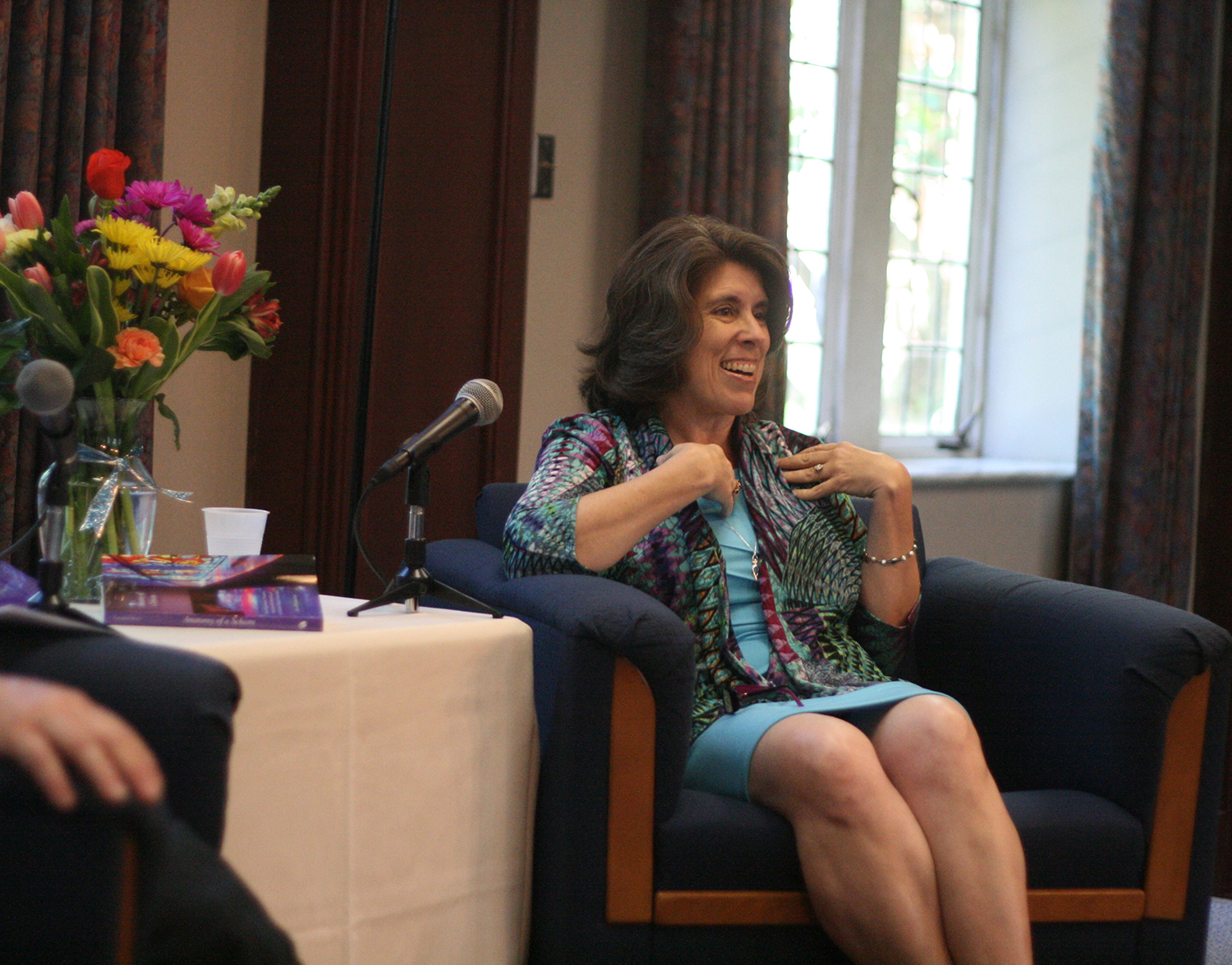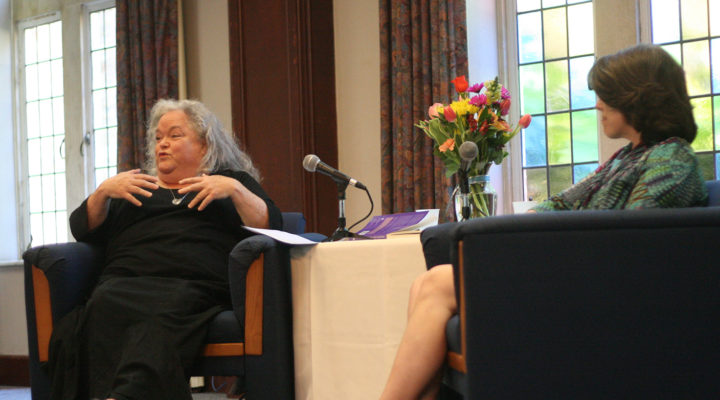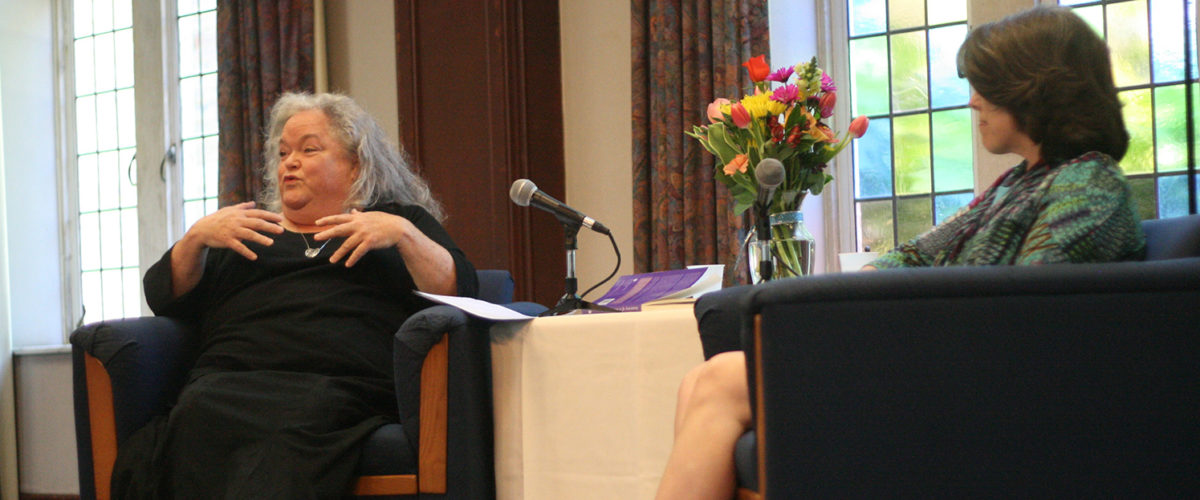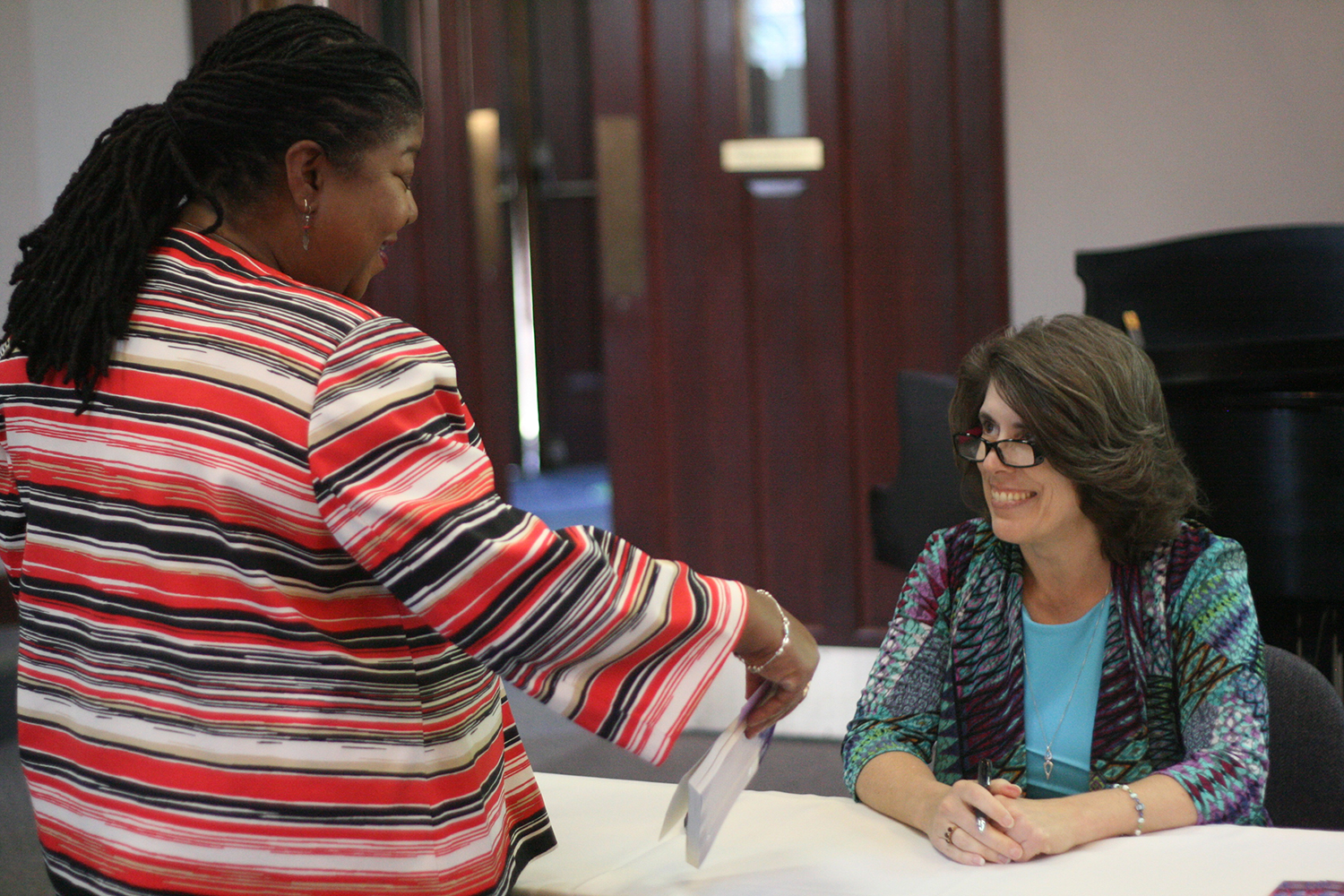Scholars have analyzed and dissected the turbulent period of 1979-1990 in the Southern Baptist Convention known collectively as the conservative resurgence, fundamentalist takeover or SBC holy war from almost every angle, but until recently most have focused on only half the story, claims a new book chronicling the period from the perspective of clergywomen.
Eileen R. Campbell-Reed, associate professor of practical theology at Central Baptist Theological Seminary in Nashville, Tenn., says earlier studies treated ordained clergywomen as an issue dividing groups she labels “biblicists” and “autonomists” rather than as “active participants” in the struggle.
Campbell-Reed, who also co-directs the Learning Pastoral Imagination Project, finds new insight in the stories of five women interviewed in Anatomy of a Schism: How Clergywomen’s Narratives Reinterpret the Fracturing of the Southern Baptist Convention, released May 13 by University of Tennessee Press.
In a book signing and author Q&A May 15 at the Scarritt Bennett Center in Nashville, Campbell-Reed said after working in a local church for more than five years after seminary, she entered graduate studies at nearby Vanderbilt University with a question: “How is it that Baptist women are doing OK given their circumstances?”
“Because their circumstances do not look good,” she explained. “Things are rough. How are they doing so well?”
“When their churches are being kicked out of things and people are fighting about whether or not they can be ordained and people are questioning their very existence, I look around at my friends and they are thriving,” she observed. “How are they doing this? What are the resources they have?”
After interviews and advice from a professor, Campbell-Reed determined to “flip the question around” and think about what new insight into the larger struggle she gained by listening to their stories.
“The way I was thinking about what happened in the schism of Baptists was that that was background material needed to understand these women’s lives,” she said. “You needed to have a sweep of what happened since 1979 in order to understand the women and their experiences.”
Changing the question to “what are they telling you about that event?” the project shifted to “putting them at the center, what do I learn about this social and historical moment?”
Campbell-Reed wrote her doctoral dissertation on “soul competency” — a doctrine first articulated by Southern Baptist theologian E.Y. Mullins in The Axioms of Religion in 1908 making the claim that each person is individually and personally accountable to God and “competent” to relate to God without mediation from a priest or human institution – and what it means to women.
“Soul competency says anybody can approach God, but in Baptist life only half the people can become ministers, because it’s a gendered concept,” she said. “Soul competency is for everybody, but it’s not really, because it’s for the men can say yes to God whatever they’re called to do, but women couldn’t say yes to whatever God called them to do.”
When it came to the book, she wanted to go further, delving into other issues that fueled the conflict from the perspective of “when women are put at the center of this set of questions about what happened, how it changes the way we see everything.”
She selected stories of five women who discerned their callings to ministry “constrained by a culture of complementarity” yet “inspired by piety and feminism,” in the process forging “a new kind of Baptist identity” in the years of struggle.
Though it wasn’t labeled as such until more recently, Campbell-Reed said “a culture of complementarity” ruled Southern Baptist culture in the 1980s into the 1990s.
“We didn’t use that language too much,” she said. “We didn’t even notice it, because we all lived in it and breathed it.”
The “particular idea of complementarity” wasn’t clearly articulated until the influence of groups like the Council on Biblical Manhood and Womanhood became felt in the early decades of the 21st century.
Endorsed by Southern Baptist Convention leaders like Albert Mohler, president of Southern Baptist Theological Seminary, Campbell-Reed said complementarity views the differences between males and females “as extreme and clear, biological, natural and God-ordained.”
“These differences are believed to be essential and necessary for each gender to complete the other,” she explained. “In other words you’ve got to have a male and a female to have a complete picture of humanity.”
“They see it as a very important solution to a problem, and I see it as a problem,” Campbell-Reed assessed the doctrine.
“There’s a double bind that holds us together,” she said. “Males and females are equal but different. In other words they’re equal but not equal.”
“The double bind for women in particular is I’m a fully equal person but not really,” she continued. “I say this is not just a problem. It’s a sinful way of looking at humanity.”
Campbell-Reed countered that human beings “are more alike than we are unalike” and “we don’t need another human being in order to make any one of us complete.” All people need other people to survive, she said, but “it’s sinful to say only a heterosexual pair represents the complete view of God’s creation.”

Eileen Campbell-Reed says that human beings “are more alike than we are unalike” and “we don’t need another human being in order to make any one of us complete.” (Photo/Bob Allen)
Campbell-Reed said complementarity leads to thinking about human relationships between men and women as “a matter of submission and domination.”
“That’s the extreme form,” she said. “In its best form complementarity was designed to guard us from our own vulnerability.”
“How does that work? We are vulnerable, frail and fragile human beings, and if we have categories for thinking it makes us feel a little more secure about who we are.”
Terming it “an adaptive defense,” Campbell-Reed cautioned: “In its extreme form and when we’re unwilling to question those categories in any way or what roles people can take, then it leads to insisting that some people have always more power and some people always have less.”
“That power imbalance creates harm and violence and abuse,” she said. “We don’t need those. That makes us more vulnerable, not less vulnerable in the end.”
Campbell-Reed said women’s leadership “helps break this open and get us talking about what it is to be a vulnerable human being in relation to other human beings.”
Campbell-Reed said while autonomists began thinking about male-female relationships as mutual, shared and equal, Baptist Sunday school material prior to the controversy consistently portrayed men and women in vastly different ways, reinforcing gender roles of women as homemakers and helpers and active leaders in churches always as men.
“The miracle is that somehow God’s spirit got through that and still called so many women to be pastors and ministers of all kinds,” Campbell-Reed said.
Campbell-Reed said the women in her book absorbed that gendered culture almost by “osmosis,” but “the piety, the belief that God is leading in our lives” still propelled them forward into ministry.
She described her own formation as a seminary student and minister as coming “in the crucible of conflict.”
“I would be a very different kind of minister if the conflict had not been a constant thing,” she said. “It made me think harder and figure out who I was going to be as a minister and then as a scholar. It shaped me in ways that are not all negative, by any means.”



